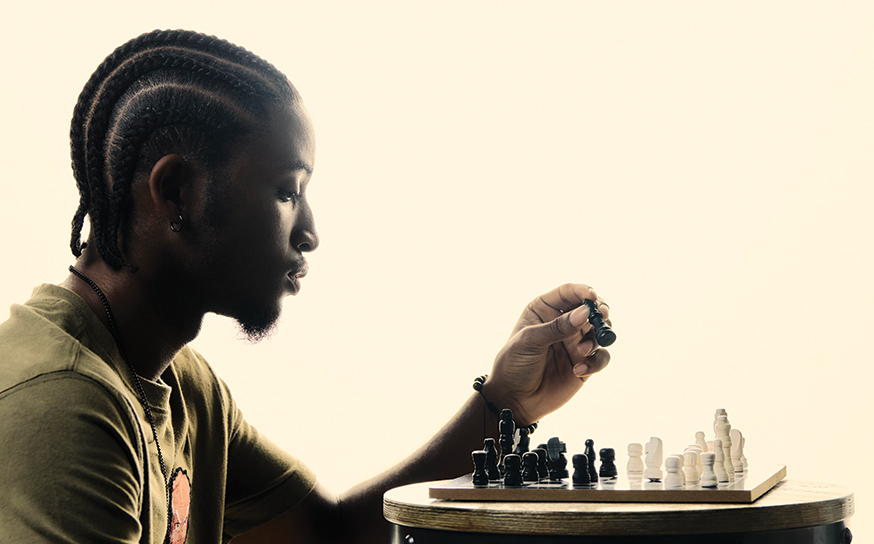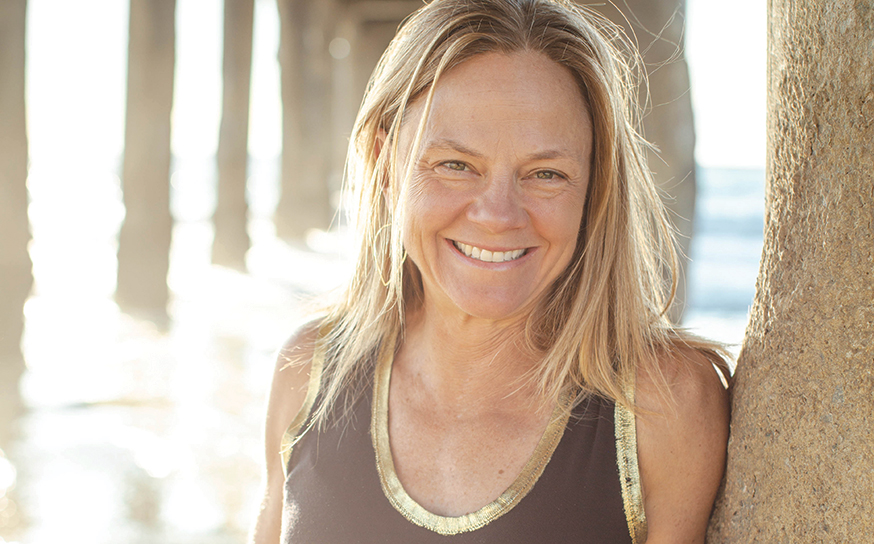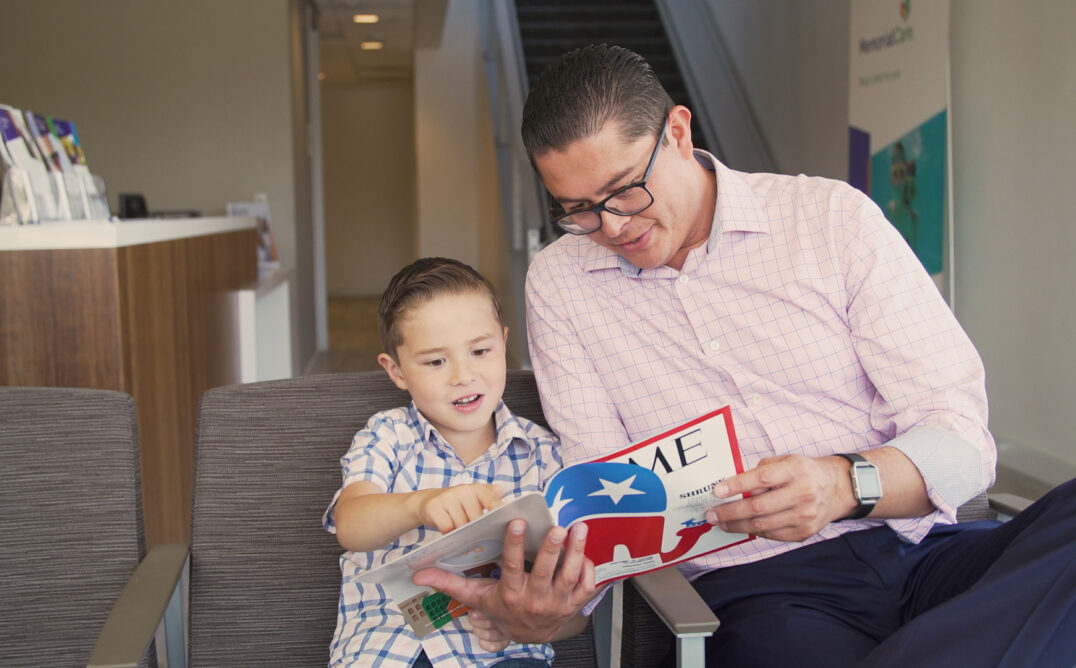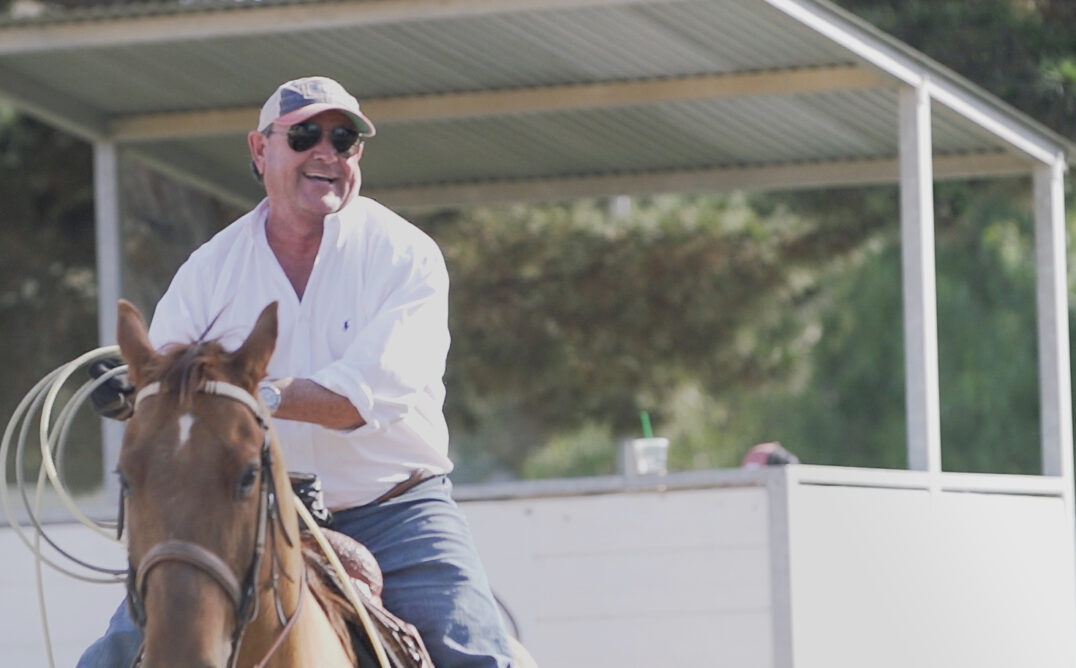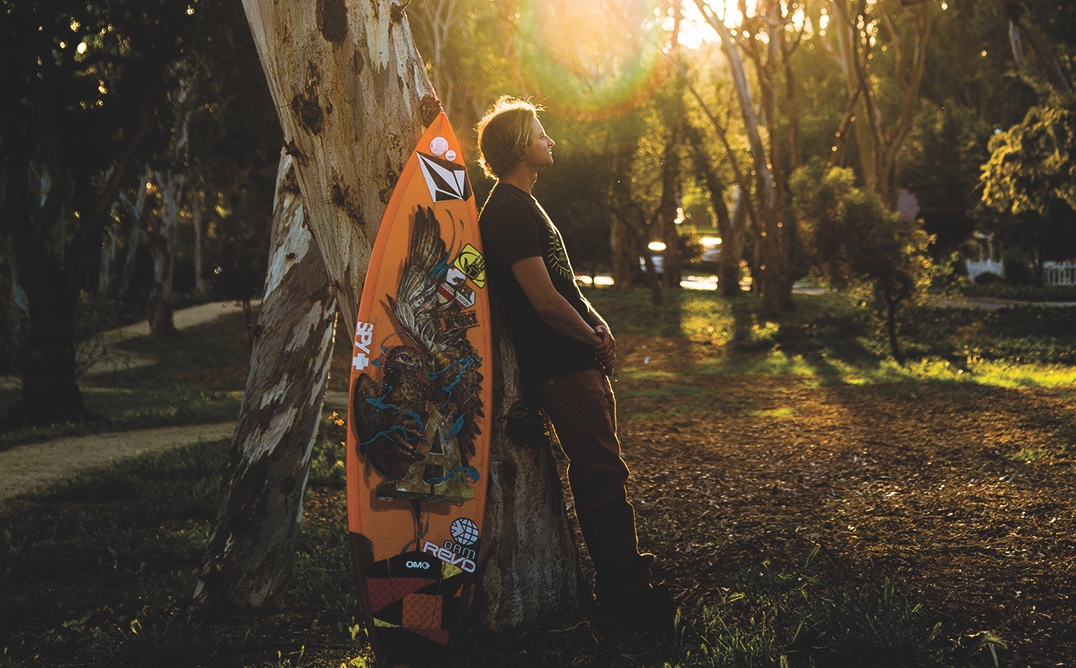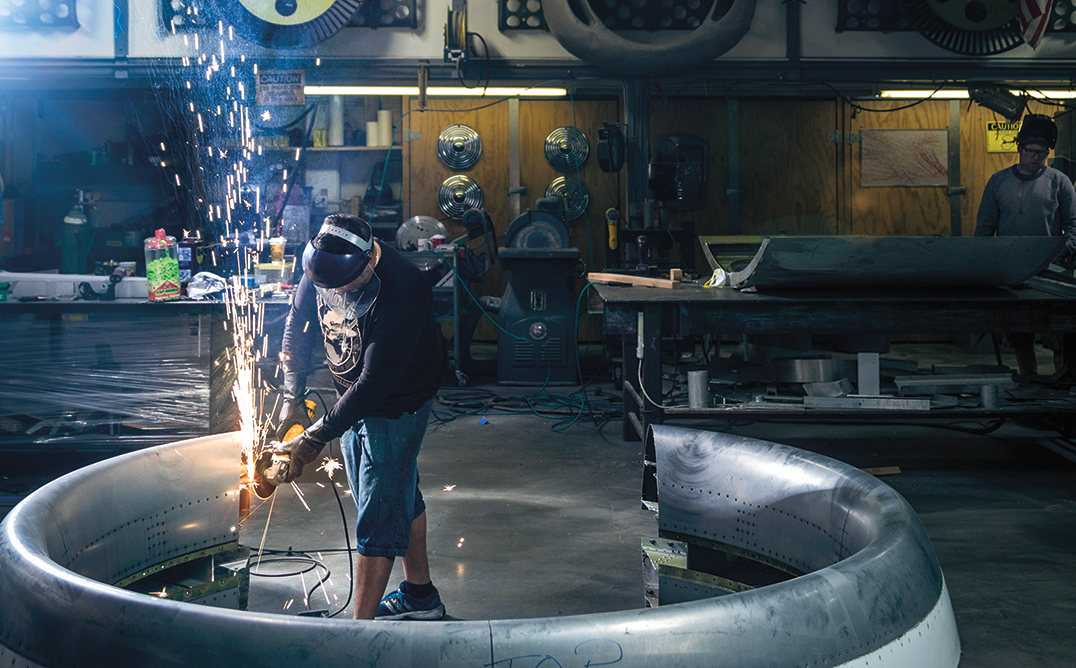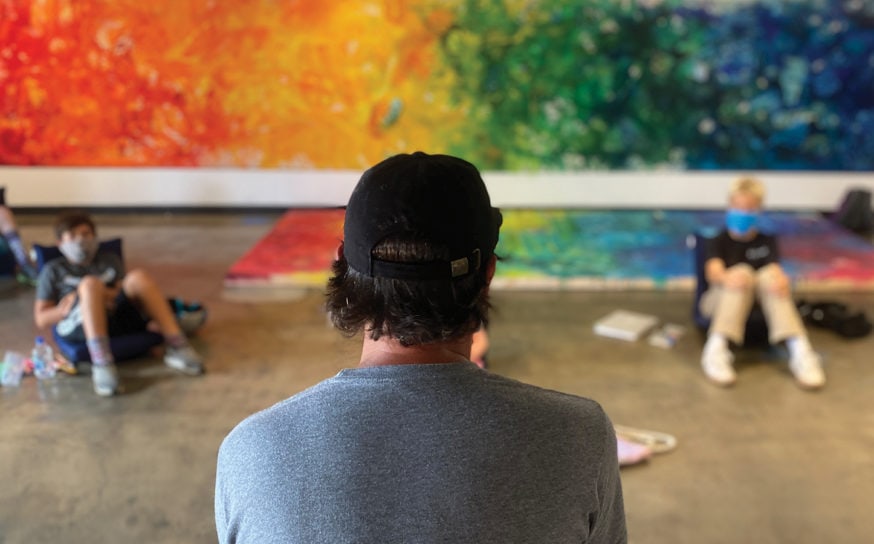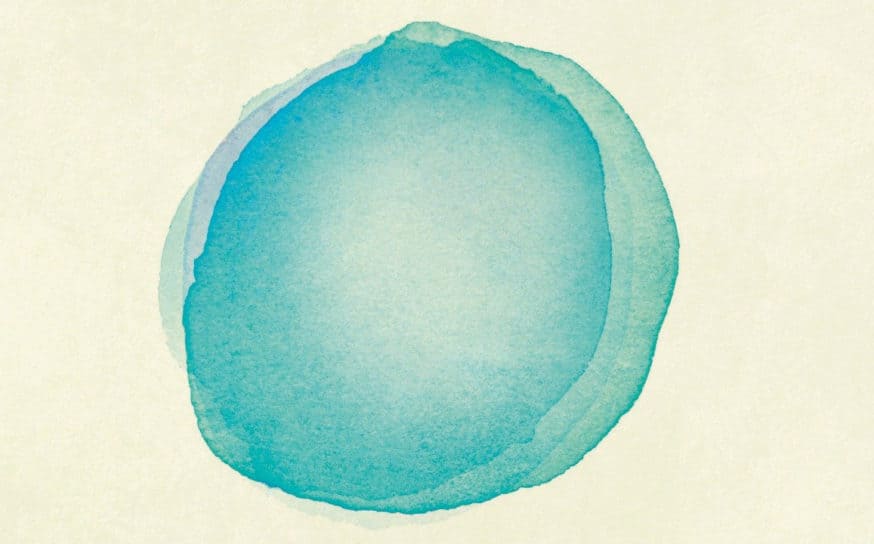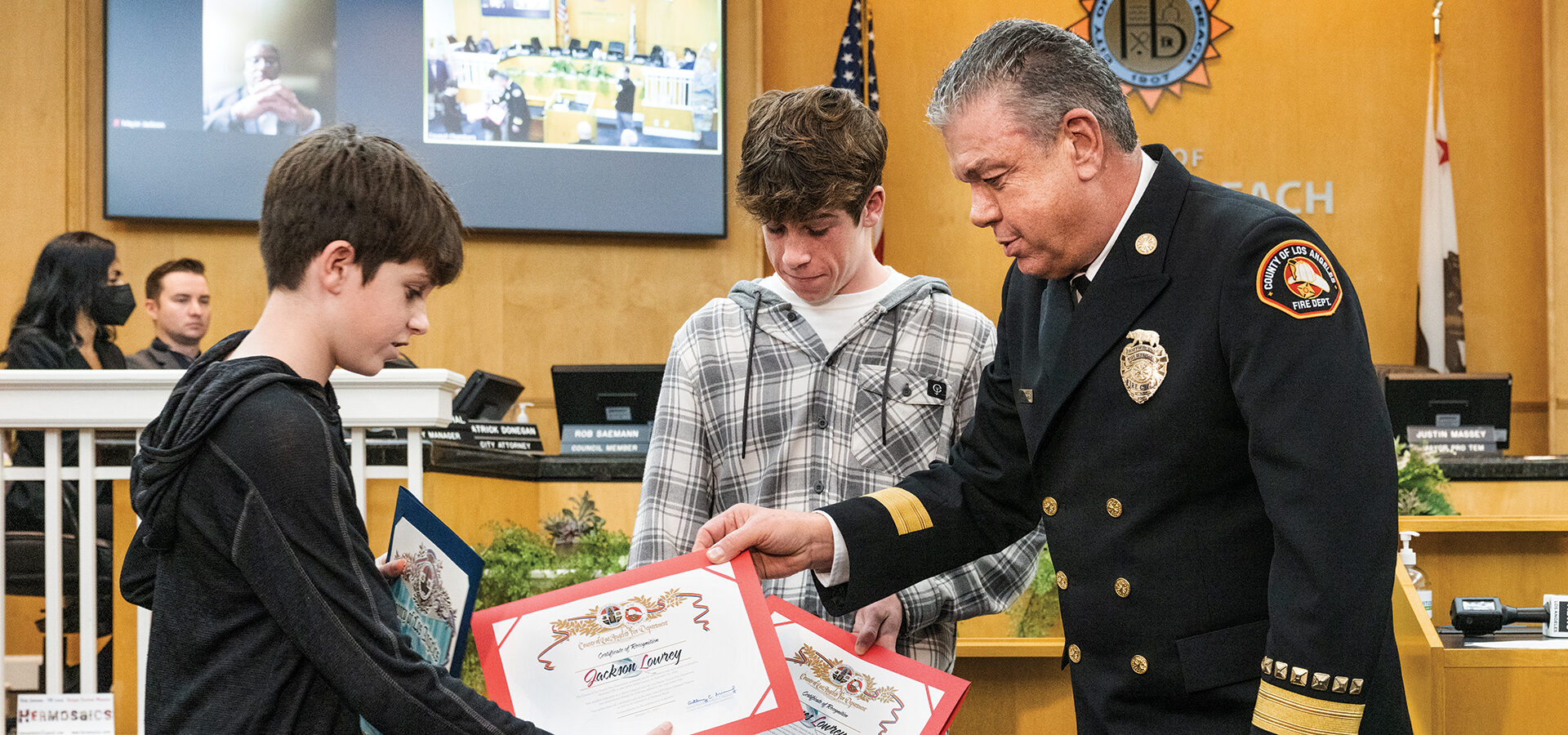
Two Brothers Knew the Most Crucial Part of CPR, and They Used the Updated Technique to Save Their Father’s Life
Quick thinking.
 In September 2022, Jim Lowrey was at home with his sons, James and Jackson (Jack), when he fell unconscious. At first Jack thought his dad was messing around as Jim lay on the floor. He said, “Dad, are you going to get up anytime soon?”
In September 2022, Jim Lowrey was at home with his sons, James and Jackson (Jack), when he fell unconscious. At first Jack thought his dad was messing around as Jim lay on the floor. He said, “Dad, are you going to get up anytime soon?”
After no response, he walked over and tapped him. Still no response. The 13-year-old sprang into action and called out to his brother, who started lifesaving compressions while Jack called 911.
The young heroes had learned CPR while attending the Junior Lifeguards program. This January, the Los Angeles County Fire Department awarded them certificates of recognition during a Hermosa Beach City Council meeting, stating that they exemplify the department’s values of caring, courage and teamwork.
Participating in Junior Lifeguards is something of a rite of passage in the South Bay community. Many kids including the Lowrey brothers consider it the highlight of their summers. Mom Nicola says, “The kids have to qualify for Junior Guards. When they do, it’s a real proud parenting moment standing there on the sand.”
During the COVID-19 shutdown, the family even created their own simulation with their neighborhood “pod” and an older cousin who works as a lifeguard—so their kids wouldn’t miss out.
On that fateful fall day, James, a 15-year-old water polo player at Loyola High School, performed compressions for four long minutes before Nicola, who was running nearby, could get back and take over until paramedics arrived. Jim was shocked three times as the family huddled in the next room praying out loud over the sound of that long, flat beep from the monitor. Then, after 27 minutes of being unconscious and the fourth and final shock, Jim’s heart started beating again.
More than 350,000 people per year die following a cardiac arrest, and the Lowrey family now advocates for more widespread CPR training. Jim says his family not only saved his life but preserved the quality of his life. Nicola, who has many years of emergency medical training, shares that the immediate, constant and correct administration of compressions at 100 to 120 bpm (to the beat of “Staying Alive”) is the most effective thing you can do to save a life.
If the brothers had waited for help to arrive during those first few moments instead of taking quick action, this would be a tragic rather than inspiring story. James said that while some people might freeze in this situation, his younger brother “certainly can think straight under pressure.” Jack said that James’ actions came as “no surprise.”
“As a parent, your children’s lives are in your hands. This was definitely a role reversal, and luckily, I was in great hands.”
James loves to surf and was awarded “most inspirational” at his water polo banquet. He is a humble young man with an easy smile. He is grateful that his dad is alive and can’t wait to once again travel to new surfing spots together. “It is definitely a gift to have him here and talk with him and do stuff with him every day,” he shares.
Jack, an animal lover, attends American Martyrs School. He seems a bit uncomfortable with all the attention, but is a happy, charming kid who lights up when talking about science or baking.
The Lowreys are touched and grateful for their friends, neighbors and community that stepped in to help and support them. With Jim fully recovered, they are focused on enjoying life together and looking forward to their upcoming celebration trip to Australia, which will include surfing for James and exotic animals for Jack.
Jim says it best: “As a parent, your children’s lives are in your hands. This was definitely a role reversal, and luckily, I was in great hands.”
Southbay ‘s Annual Spring Style Guide Has the Latest Fashion Trends, Jewelry, Home Goods and Gifts!
Shop local and support our amazing businesses.







